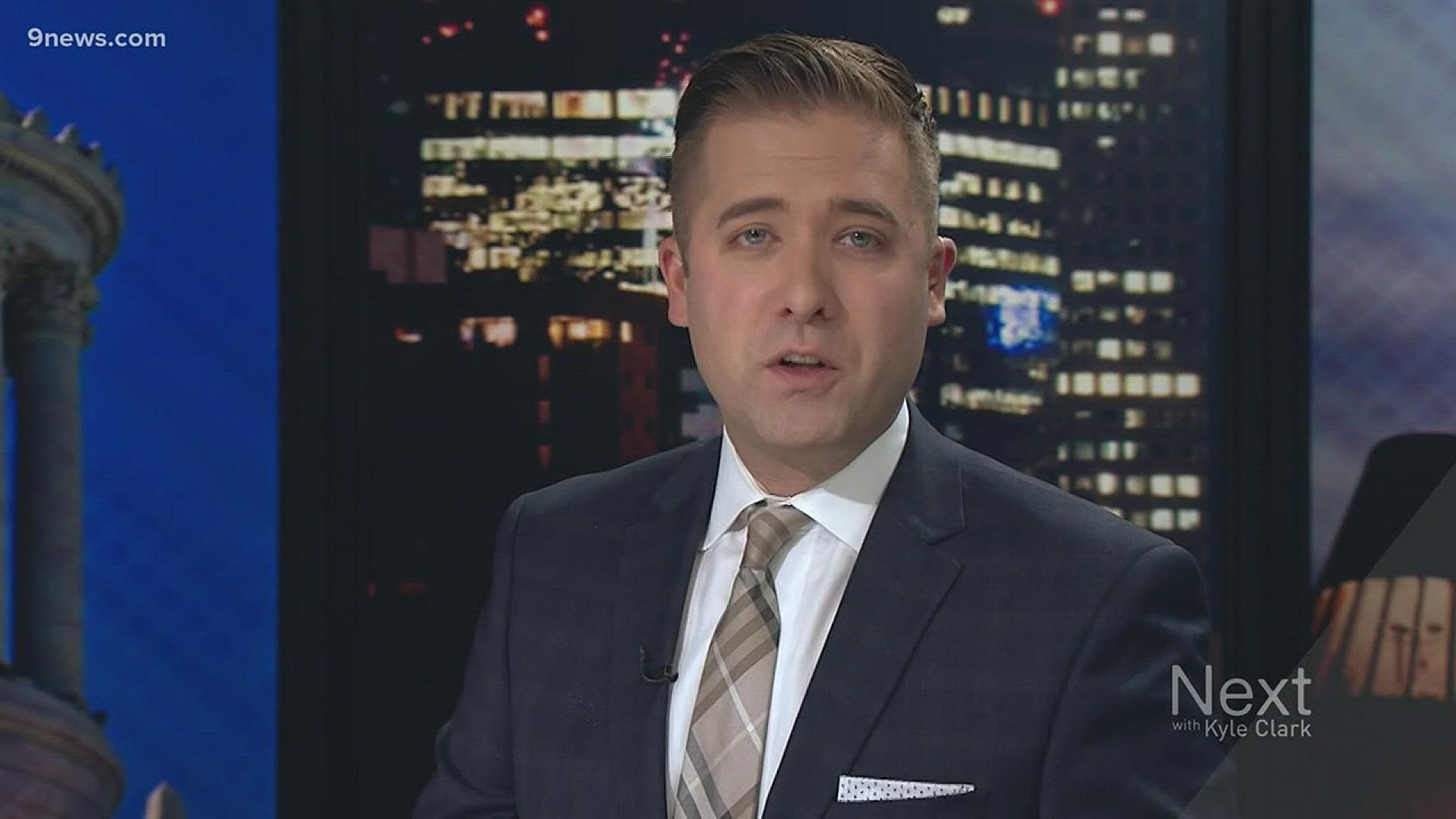BROOMFIELD, Colo. — Before pitching lawmakers on his free full-day kindergarten payment proposal, Gov. Jared Polis (D-Colorado) took his plan straight to kindergartners.
"I'm the governor of Colorado. Hi everybody! Oh my gosh, you look so surprised. I came to visit you," Polis said as he walked into a classroom at Centennial Elementary School in Broomfield.
"You don't have to salute the governor, that's OK," he told a student in another classroom.
Polis toured the school Wednesday, which offers a "sliding scale" for kindergarten tuition. Depending on a family's income level and household size, some full-day kindergartners pay nothing, while others must pay up to $300 a month.
"Saving parents money and saving families money is really the centerpiece of our agenda," Polis told Next with Kyle Clark after the tour.
During the tour, he read a few books to the kindergarten class, including one called "The Boy Who Wouldn't Share." By the end of the story, the moral was similar to the request he's making to lawmakers.
"It's good to share with your brothers and sisters and friends," said Polis.
One of Polis' promises, since he started his campaign for governor, was to offer free full-day kindergarten. His budget proposal calls for $227 million of state funds to pay for kindergarten for every district in Colorado. Another $25 million would provide funding for curriculum and even adding space for the new classes.
The money would come from higher estimates on property tax collections over the next two years because of higher property values.
"We want to make it just like first grade, which everybody can go to. We think kids ought to be able to go to kindergarten just like they can go to first grade," Polis told the kindergartners. "Does that sound like a good idea?"
"Our standards for students has increased, and the rigor is a lot more, and we expect a lot more from our students," said Centennial Elementary principal Christine Parkes. "To be able to fit everything into the two-and-a-half hours is very challenging when you're thinking that a kindergarten teacher needs to teach literacy, math, science and social studies."
Centennial Elementary offers two full-day kindergartens and one half-day. Of the 50 kids in the full-day classes, five families pay the full $300 monthly fee.
Parent Tiffany Anderson has already paid the full fee for her daughter who is now in second grade.
"I have a small one that's four, she'll be coming in next year," said Anderson.
She said she's willing to pay the fee again, but this plan would help her keep four figures.
When Polis revealed his plan on Tuesday, one of the complaints voiced by Republicans, and even Democrats on the Joint Budget Committee, was about the lack of transportation spending.
"We're recommending in our budget $200 million for roads and transit, which is the same recommendation that (former Gov.) John Hickenlooper put forward in his budget," said Polis.
So, if faced with a debate between $227 million for free full-day kindergarten for one year, or perhaps spending that money on the road to get to kindergarten, Polis' audience was all in on education.
"If I were choosing between the two, and I think both are very important, and it's complicated, and it's going to take a lot more people way smarter than me digging into these issues to figure that out, but I think that education is the one thing that if you're educating people, those people eventually are contributing to society and helping to solve problems. So, if I were putting a tier of importance, education would definitely fall higher for me," said Anderson.
"I don't want to say that we don't need roads and don't need to improve our roads," said Parkes. "When you see the gap large in third grade, it's harder to close the gap -- I'm talking about the learning gap -- where if we catch the gap when they're in kindergarten and fill all the holes with a longer day, then we have a better chance of them being where they need to be grade level, and they'll be successful when they go out into the general population."
One of Polis' talking points is that money from the state frees up local district money that could be used elsewhere within the school.
"From the state perspective, if kindergarten is just funded, it will free up district funds for both preschool as well as grades one through 12," said Polis.
"The district gives me an allotted amount of money, and then I get to determine with a team, on where that money's going to go. The majority of my money goes toward staffing, so that is what I would put it towards," said Parkes.
However, principals don't control teacher salaries. That would be a decision between school boards, superintendents and teachers' unions.
One other concern from Democrats on the Joint Budget Committee was that they don't want to approve what might become an unfunded mandate, something the state can afford this year, but not in future years.
"We're leaving $92 million unspent this year to deposit in the State Education Fund to help prevent cutbacks to schools or to kindergarten if there's a recession," said Polis.
A few hours after his school visit, Polis presented his budget to the four Democrats and two Republicans that make up the Joint Budget Committee. Just like the kindergarten class after reading time, none of them asked any questions about funding full-day kindergarten.

